Martin Bachwerk
Establishing linguistic conventions in task-oriented primeval dialogue
Mar 02, 2012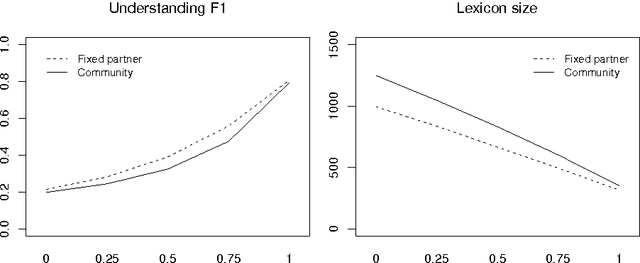
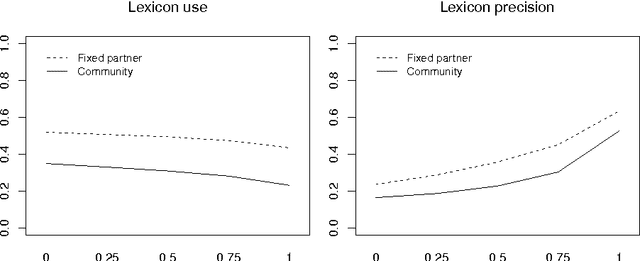
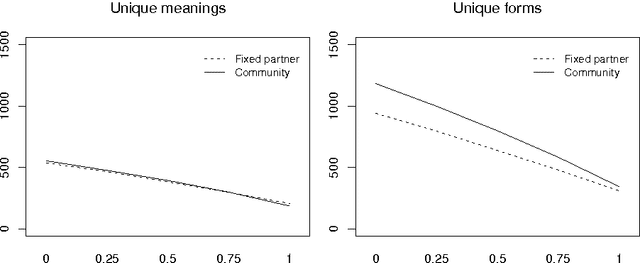
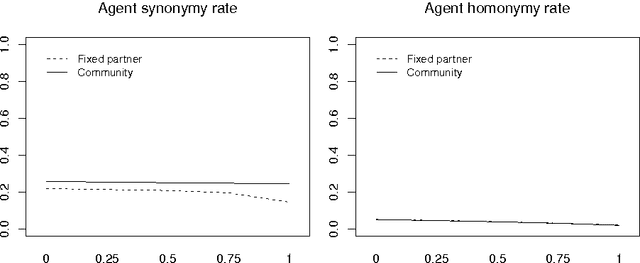
Abstract:In this paper, we claim that language is likely to have emerged as a mechanism for coordinating the solution of complex tasks. To confirm this thesis, computer simulations are performed based on the coordination task presented by Garrod & Anderson (1987). The role of success in task-oriented dialogue is analytically evaluated with the help of performance measurements and a thorough lexical analysis of the emergent communication system. Simulation results confirm a strong effect of success mattering on both reliability and dispersion of linguistic conventions.
* 8 pages, 5 figures. In proceedings of the COST 2102 International Conference, Budapest, Hungary, September 7-10, 2010, Revised Selected Papers
Modelling Social Structures and Hierarchies in Language Evolution
Mar 02, 2012
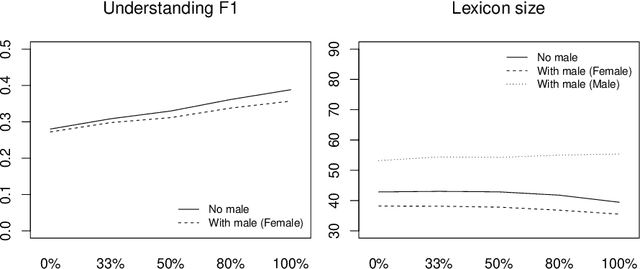


Abstract:Language evolution might have preferred certain prior social configurations over others. Experiments conducted with models of different social structures (varying subgroup interactions and the role of a dominant interlocutor) suggest that having isolated agent groups rather than an interconnected agent is more advantageous for the emergence of a social communication system. Distinctive groups that are closely connected by communication yield systems less like natural language than fully isolated groups inhabiting the same world. Furthermore, the addition of a dominant male who is asymmetrically favoured as a hearer, and equally likely to be a speaker has no positive influence on the disjoint groups.
* 14 pages, 3 figures, 1 table. In proceedings of AI-2010, The Thirtieth SGAI International Conference on Innovative Techniques and Applications of Artificial Intelligence, Cambridge, England, UK, 14-16 December 2010
 Add to Chrome
Add to Chrome Add to Firefox
Add to Firefox Add to Edge
Add to Edge